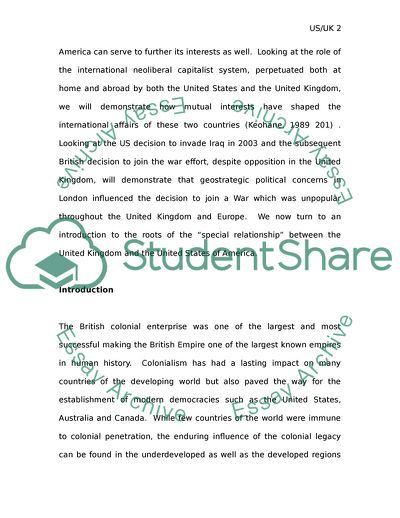Cite this document
(Special Relationship between Britain and the US Case Study, n.d.)
Special Relationship between Britain and the US Case Study. Retrieved from https://studentshare.org/politics/1737520-to-what-extent-is-the-special-relationship-between-britain-and-the-us-based-on-common-interest
Special Relationship between Britain and the US Case Study. Retrieved from https://studentshare.org/politics/1737520-to-what-extent-is-the-special-relationship-between-britain-and-the-us-based-on-common-interest
(Special Relationship Between Britain and the US Case Study)
Special Relationship Between Britain and the US Case Study. https://studentshare.org/politics/1737520-to-what-extent-is-the-special-relationship-between-britain-and-the-us-based-on-common-interest.
Special Relationship Between Britain and the US Case Study. https://studentshare.org/politics/1737520-to-what-extent-is-the-special-relationship-between-britain-and-the-us-based-on-common-interest.
“Special Relationship Between Britain and the US Case Study”. https://studentshare.org/politics/1737520-to-what-extent-is-the-special-relationship-between-britain-and-the-us-based-on-common-interest.


